
Roman Amphitheatre. Lecce. La Puglia. L'Italia. Fotografia Stock
Piazza Sant'Oronzo, 73100 Lecce LE, Italia. +390805285210 Website. Roman Amphitheatre of Lecce, Lecce. Find out the history and all useful information for visiting the monument in Italy.

LECCEThe Roman amphitheater of ancient Lupiae is partially intact
The Basics. Discovered in the early 1900s and excavated in 1938, Lecce's Roman amphitheater was once five stories high. It seated 25,000 spectators and hosted gladiator bouts to entertain the legions of Roman soldiers billeted in what is now the region of Puglia. Beneath the arena, the pens that once housed animals, prisoners, and slaves can.

Pin on Ancient Castles and Miscellaneous Ruins
Lecce: Roman amphitheatre. Roman amphitheatre in Lecce, Italy. Lecce, city, Puglia (Apulia) regione, southeastern Italy. It lies on the Salentina peninsula, or "heel" of Italy, east of Taranto. Possibly built on the site of the ancient Roman town of Lupiae, Lecce was contested by the Byzantines, Lombards, and Saracens after the fall of the.

Lecce Roman Amphitheatre / Another jewel of this town full of
Piazza del Duomo Church of Santi Niccolò e Cataldo Church of San Giovanni Battista The Roman amphitheatre. Lecce (/ ˈ l ɛ tʃ eɪ / Italian: ⓘ) is a city in southern Italy and capital of the province of Lecce, with the second-highest population in the Apulia region. It is on the Salentine Peninsula, at the heel of the Italian Peninsula, and is over two thousand years old.

Roman Amphitheatre of Lecce Italy Review
The amphitheater is the most important testimony of Lupiae, the ancient name of Lecce, Roman era. It is thought to be dated between the I and the II century AD, between the age of Augustus and the Trajan-Hadrian one. The external volume of the amphitheater was 102 x 83 meters, with an arena of 53 x 34 meters, accommodating about 25,000 spectators!
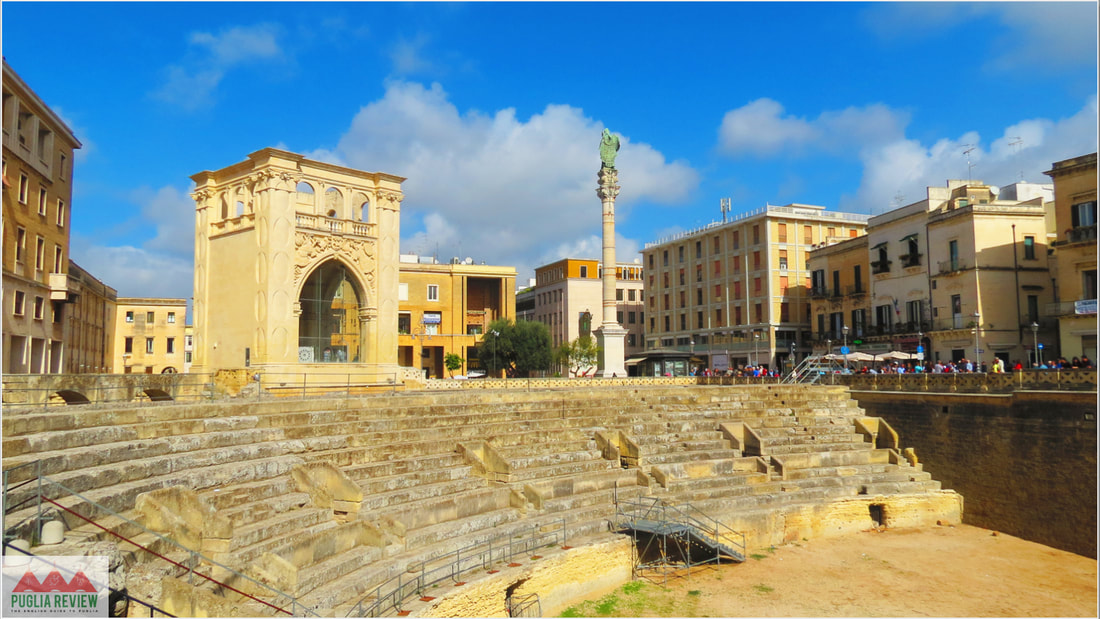
Roman Amphitheatre of Lecce Italy Review
The tour starts with a visit to the majestic Santa Croce Church, the jewel in the crown of Lecce's Baroque architecture. From here, explore the nearby Piazza Sant'Oronzo, the former market square where you can find the Old Town Hall, the Roman Column, and the remains of a huge Roman amphitheater. Continue the tour with a walk through the.
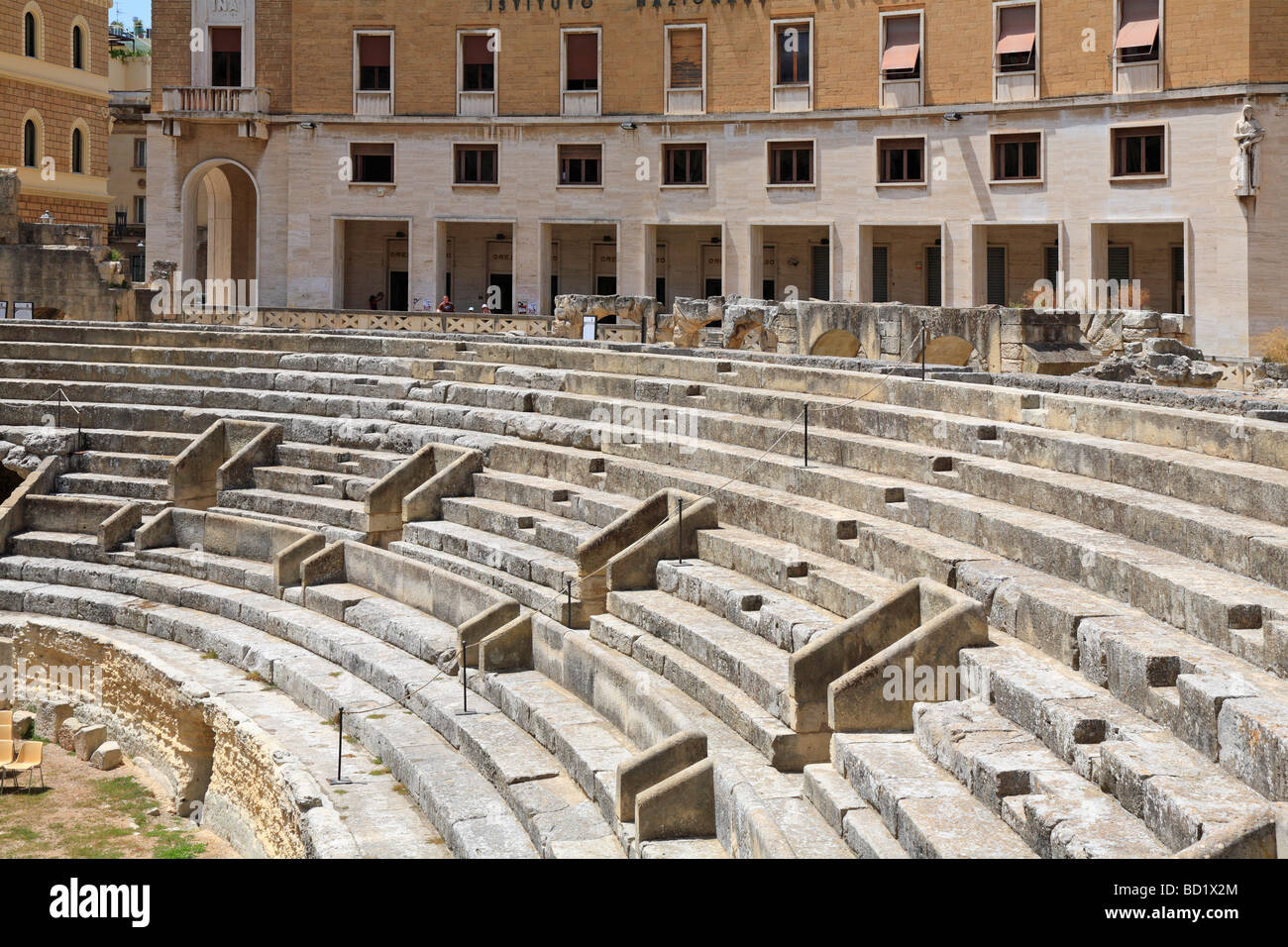
Roman Amphitheatre, Lecce, Puglia, Italy Stock Photo Alamy
A beautiful Roman amphitheater in Lecce!!! Review of Anfiteatro Romano. Reviewed November 9, 2017 via mobile . This is a very well conserved historical roman amphitheater in Lecce. In the middle of the main square. Very well iluminarse and with tons of history. An attraction itself that you must see.

Roman Amphitheatre in Lecce, Puglia Apulia, Southern Italy Stock Photo
Buried treasure: Lecce's Roman Amphitheater. It isn't exactly rare to find a Roman amphitheatre in Italy, but Lecce's is right in the middle of the old town, brilliantly preserved and incredibly, only rediscovered in 1901. It had been buried by other structures for millennia until a builder digging foundations for a new bank found the.

Roman Amphitheatre of Lecce, Italy Stock Image Image of tourist
The highlight is the large Roman amphitheatre which once seated 14,000 spectators on its two tiers, although only the lower tier remains. Sometimes concerts still take place here. In the piazza, you can also see the column of Sant'Oronzo and an unusual 20-meter high bronze clock, the Orologio Delle Meraviglie, created in 1955 on the wall of.

Lecce by Marco Gaviraghi 500px Lecce, Italy tours, Best of italy
The Roman amphitheater of Lecce is situated in the main piazza of the old town. Even more interesting, it was completely hidden from view and its existence unknown until as recently as 1901. The.
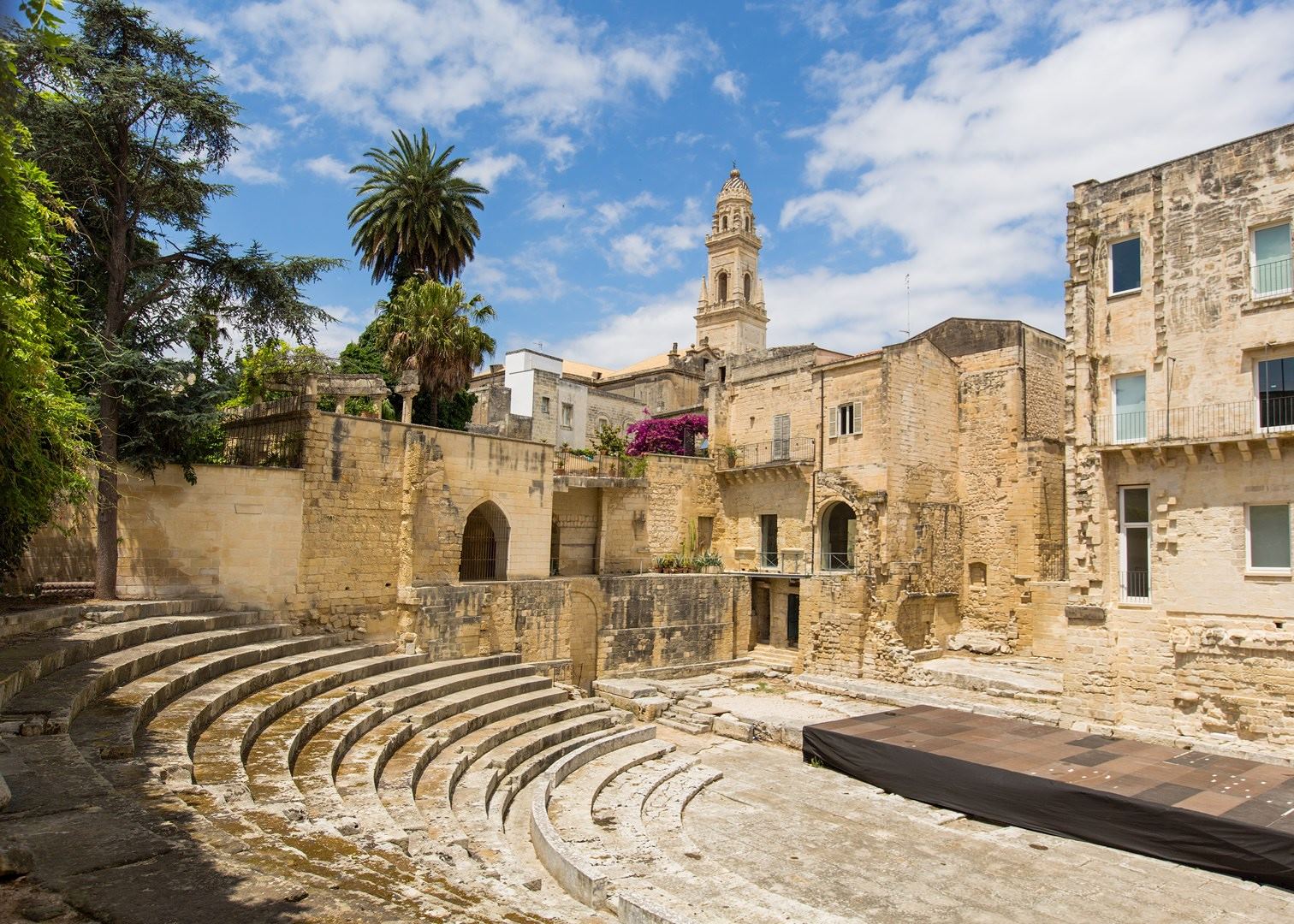
Tailormade vacations to Lecce Audley Travel
The Roman amphitheatre of Lecce dates back to the second century AD and the time of Emperor Hadrian's rule. Featuring an elliptical layout, it's partly buried and partly supported by arcades resting on tuff columns. The amphitheatre of ancient Lupiae lies on what once were the eastern outskirts of the Roman city of Augustan Age, and was capable.

Roman Amphitheatre In Lecce Puglia Southern Italy Stock Photo
This local style is known as Barocco Leccese ('Lecce Baroque. The square also hosts one of the most important Roman ruins: a 25,000-seat theatre and Roman amphitheater from the 1st century BC. this space was used to entertain euphoric spectators through games, fights between gladiators and theatrical shows..
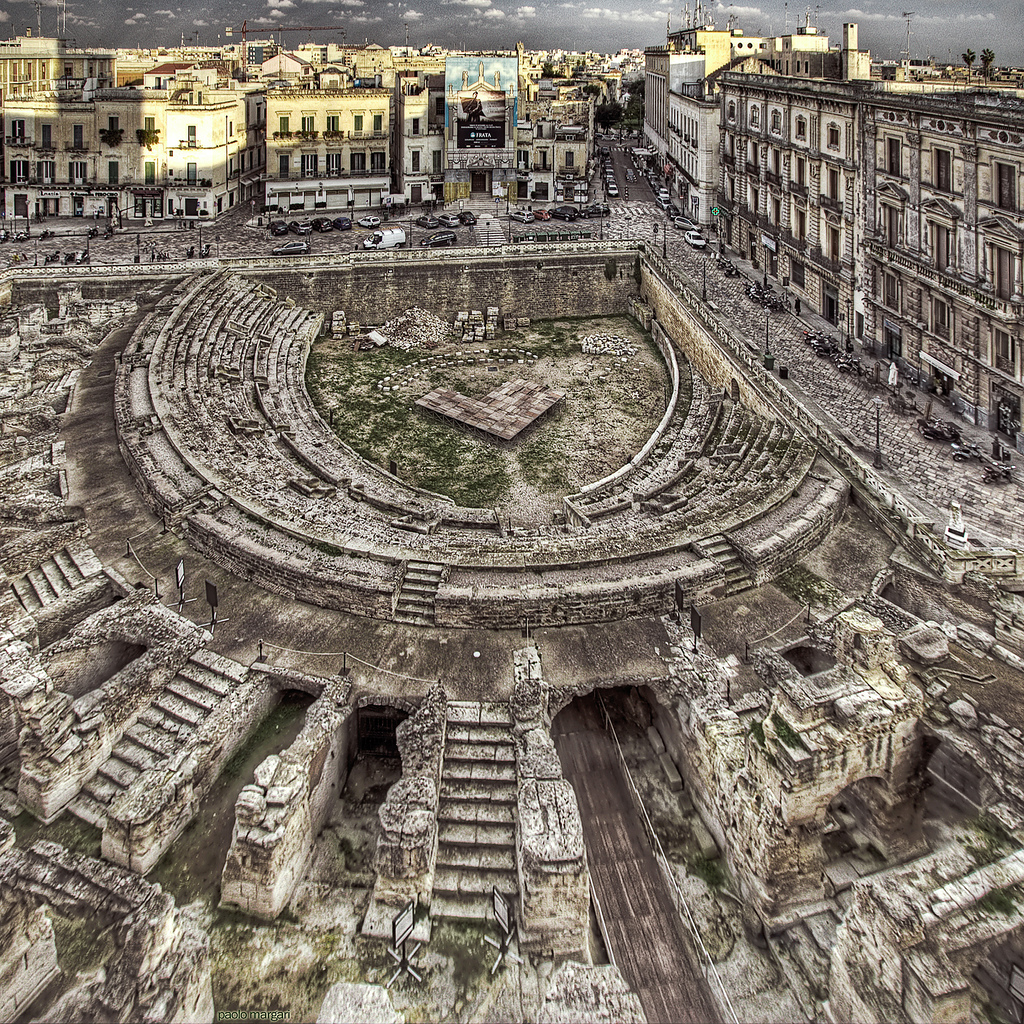
Guide to Puglia where to visit, what to eat, and traditional dishes
Italy, Europe. Lecce. Below the ground level of the piazza is this restored 2nd-century-AD amphitheatre, discovered in 1901 by construction workers. It was excavated in the 1930s to reveal a perfect horseshoe that actually extends under the rest of the square to originally seat 15,000. A little colonised by weeds, it's nonetheless an impressive.

Lecce Baroque Architecture, Roman Ruins & Salento Region Britannica
Roman Amphitheatre. The unique feature of the Piazza Sant'Oronzoi is the Roman Amphitheatre. The remains of this huge structure were uncovered only about 100 years ago, when the new Banca d'Italia building's foundations were being dug; and the site was only properly excavated after 1945, with about half of it now exposed to view, the rest.

Roman Amphitheater in Lecce, Expedia
The amphitheater is the most important testimony of Lupiae, the ancient name of Lecce, Roman era. It is thought to be dated between the I and the II century AD, between the age of Augustus and the Trajan-Hadrian one. The external volume of the amphitheater was 102 x 83 meters, with an arena of 53 x 34 meters, accommodating about 25,000 spectators!
Ancient and new the Roman amphitheatre in Lecce, Puglia region, Italy
Lecce is known for its 17th-century Baroque beauty, but the city's history stretches back to the Roman empire. Nowhere is this legacy more evident than in Lecce's Piazza Sant'Oronzo, where theLecce Roman Amphitheatre (Anfiteatro Romano di Lecce) from the second century BC is still used today for performances.